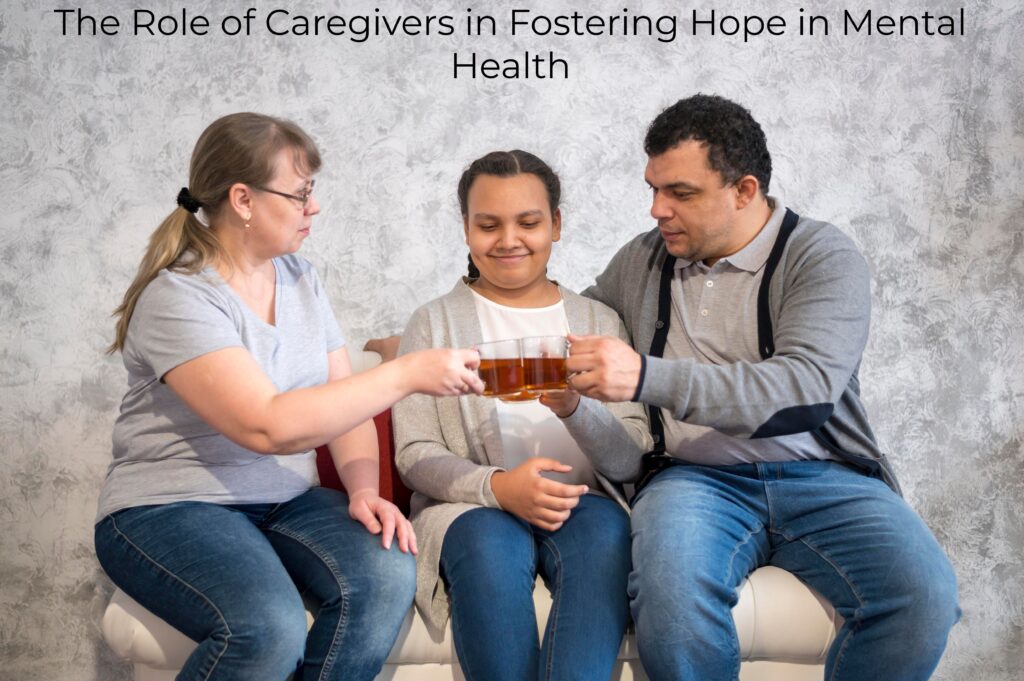Introduction
Here is the role of caregivers in fostering hope in mental health.
The importance of caretakers has never been greater in a world where mental health issues are becoming more widespread.

Caregivers are essential in helping people with mental health issues find hope and healing, from offering emotional support to facilitating access to behavioral health resources.
Understanding Hope in Mental Health
Table of Contents
In terms of mental health, hope is a strong and frequently underappreciated force. It’s the conviction that things can get better tomorrow and that rehabilitation is achievable.
Hope can be a beacon of light for those dealing with mental health issues during dark times. Professional care requires behavioral health services, but the presence of optimism can greatly increase the efficacy of these therapies.

The Caregiver's Impact
Whether they are friends, family, or paid professionals, caregivers are essential to fostering hope. They can help in a variety of ways:
- Offering Emotional Support: A sympathetic ear and caring demeanor can provide consolation and assurance. Caregivers make people feel less alone and more understood in their difficulties.
- Enabling Resource Access: Getting around the mental health system can be difficult. Finding the right behavioral health services, such as counseling, therapy, support groups, and workshops, can be facilitated by caregivers.
Self-care is essential for mental health, even in the absence of professional assistance. Positive thinking, mindfulness, and relaxation are all things that caregivers may support.

- Appreciating Little Wins: The road to recovery is paved with little victories. Acknowledging and applauding these successes can increase motivation and hope.
Caregiver Support
While providing care can be immensely fulfilling, there are drawbacks as well. To make sure they are prepared to deliver the greatest care possible, caregivers need help. The following are some tactics for caregivers:
- Seek Professional Guidance: Consult mental health specialists for suggestions on how to help your loved one the most effectively.
- Participate in support groups: Making connections with other caregivers helps foster a feeling of camaraderie and understanding.
- Take Care of Yourself: Caregivers must take care of their emotional health. Make time regularly to engage in relaxing and rejuvenating activities.
- Educate yourself: Being aware of mental health issues and available treatments will enable caregivers to offer knowledgeable assistance.

Frequently Asked Questions
1. How can caregivers maintain hope when supporting someone with mental health challenges?
By applauding each accomplishment and concentrating on any development, no matter how tiny, caregivers can keep optimism alive. Positive thinking can also be strengthened by participating in support groups and keeping up with advancements in mental health.
2. What are some effective ways for caregivers to support individuals in accessing mental health resources?
Caregivers can help by scheduling appointments, researching available mental health resources, and, if necessary, going with the person to the appointment. Additionally, they can assist by promoting dialogue between patients and mental health providers.
3. How can caregivers balance their own mental health needs while supporting someone else?
Prioritizing self-care, getting professional help when necessary, and joining caregiver support groups are all important for caregivers. Setting limits, taking pauses, and doing things that restore their vitality and well-being are all very important.
4. What role does professional assistance play alongside caregiving in mental health recovery?
Specialized therapies and treatments that may be outside the scope of a caregiver’s training are provided by professional aid. Working together, caregivers and mental health specialists can improve rehabilitation efforts and guarantee all-encompassing support.
5. How do caregivers recognize when they need external support?
If caregivers experience burnout symptoms including feeling overburdened, losing tolerance, or ignoring their own needs, they should get outside help. Maintaining their ability to care for others requires them to recognize these symptoms and seek assistance.
Conclusion
In the field of mental health, caregivers are often overlooked heroes. They assist people on their road to recovery by cultivating hope and offering unwavering support.
For those who are providing care, keep in mind that your efforts have a significant impact, and ask for help when you need it.
By working together, we can build a more optimistic future for mental health.
Visit [Your Organization’s Website] to learn more about our extensive guides and support networks, as well as behavioral health services and caregiver resources.

Pingback: The Role of a Health Insurance Lawyer in Resolving Disputes -